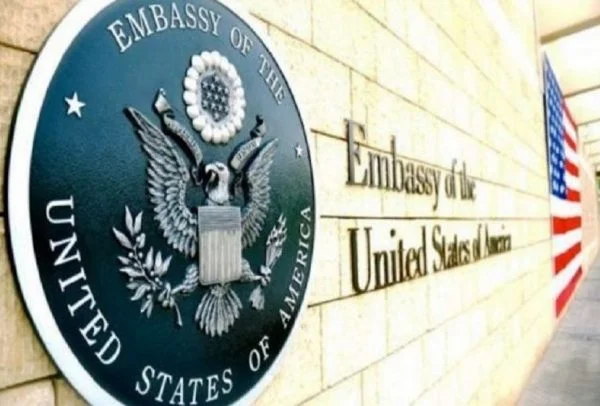Family members of citizens of the United States of America have started leaving the Federal Capital Territory, abuja following the terror alert raised by the country and other foreign missions.
The US Department of State confirmed the development of Friday apart from an updated notice from the Mission in Nigeria.
The Department of State said families as well as non-emergency personnel from Abuja have been ordered to leave.
It the statement, it said the order to leave applied only to family members and that non-essential workers were being given the choice, but were not required to depart.

“The Department of State made the decision to recommend ordered departure for (family members) in Abuja out of an abundance of caution related to an elevated risk of terror attacks in Nigeria,” a department spokesperson said.
An update from the US Mission in Nigeria on Friday said: “The Travel Advisory for Nigeria has been updated due to a heightened risk of terrorist attacks in Abuja. We recommend U.S. citizens do not travel to Abuja at this time.
“In addition, on October 27, 2022, the Department ordered the departure of family members of U.S. government employees from Abuja due to heightened risk of terrorist attacks, following on the October 25 authorization of departure of non-emergency U.S. government employees and family members from Abuja due to heightened risk of terrorist attacks.
“U.S. citizens should consider departing Abuja using available commercial options. U.S. citizens who wish to depart but are unable to secure commercial options to do so can contact the U.S. Consulate in Lagos at LagosFM@state.gov for assistance.
“The U.S. Embassy Abuja is only able to provide emergency assistance to U.S. citizens in Abuja. The U.S. Consulate General in Lagos is providing all routine and emergency services to U.S. citizens in Nigeria. U.S. Citizens in Nigeria who require assistance should contact LagosACS@state.gov or +234 1 460 3410.”
Those willing to travel to Nigeria were given the following guidelines:
Carry proper identification, including a U.S. passport with a current Nigerian visa, if needed.
Use caution when walking or driving at night.
Keep a low profile.
Review travel routes and times to vary your predictability.
Monitor local media for breaking events and be prepared to adjust your plans.
Be aware of your surroundings.
Stay alert in locations frequented by Westerners.
Avoid demonstrations and large political gatherings.
Review your personal security plans.
Have evacuation plans that do not rely on U.S. government assistance.
Establish a “proof of life” protocol with your loved ones, so that if you are taken hostage, your loved ones know specific questions (and answers) to ask the hostage-takers to be sure that you are alive (and to rule out a hoax).
Enroll in the Smart Traveler Enrollment Program (STEP) to receive alerts and make it easier to locate you in an emergency.
Obtain comprehensive medical insurance that includes medical evacuation.
Follow the Department of State on Facebook and Twitter.
Review the Country Security Report for Nigeria.
Prepare a contingency plan for emergency situations. Review the Traveler’s Checklist.
Visit the CDC page for the latest Travel Health Information related to your travel.
Read the Department of State’s COVID-19 page before you plan any international travel, and read the Embassy COVID-19 page for country-specific COVID-19 information.


